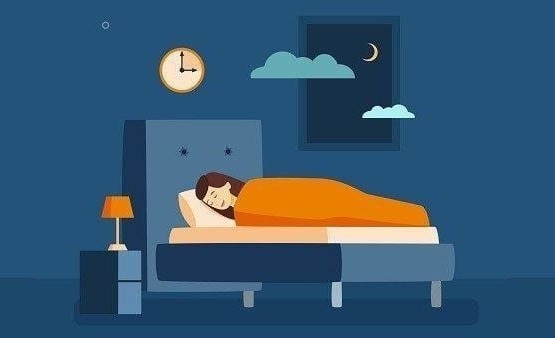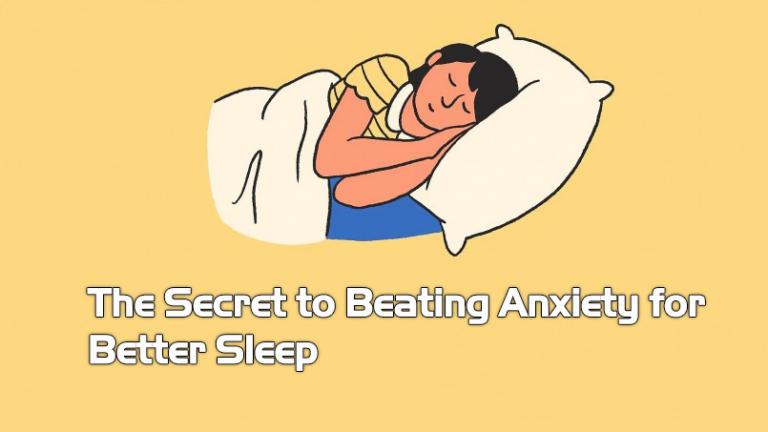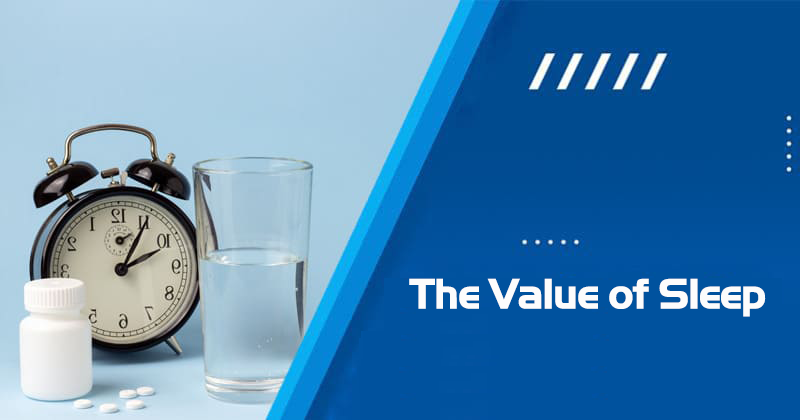Part I: Understanding Chronic Insomnia
Chronic insomnia is a multifaceted sleep disorder characterized by persistent difficulties in initiating or maintaining sleep, or experiencing non-restorative sleep, despite adequate opportunity and circumstances for sleep. This condition not only affects the quantity of sleep but also compromises its quality, leading to significant daytime impairment. The understanding of chronic insomnia requires a comprehensive examination of its physiological, psychological, and social dimensions, along with the complex interplay of various factors that contribute to its development and persistence.
At its core, sleep is a biological necessity governed by intricate circadian rhythms and homeostatic processes. The body’s internal clock regulates sleep-wake cycles, influenced by environmental cues such as light and darkness. Disruptions to these cycles—whether from shift work, travel across time zones, or irregular sleep patterns—can significantly impair sleep quality. Furthermore, chronic insomnia often associates with various physiological conditions, including sleep apnea, restless leg syndrome, and psychiatric disorders like anxiety and depression. These conditions not only exacerbate insomnia but can also create a cyclical pattern where poor sleep contributes to worsening health issues.
The psychological aspect of chronic insomnia is equally profound. Cognitive-behavioral models suggest that individuals with insomnia often harbor negative beliefs about sleep, leading to heightened anxiety as bedtime approaches. This anxiety can compound insomnia symptoms, creating a vicious cycle where the fear of sleeplessness leads to increased arousal and further difficulty in falling asleep. Intrusive thoughts and rumination about daily stressors can disrupt the mind’s ability to transition into restful states, reinforcing maladaptive sleep habits.
Moreover, sociocultural factors play a pivotal role in the development and maintenance of chronic insomnia. Lifestyle choices—including diet, exercise, and substance use—significantly influence sleep patterns. For instance, excessive caffeine intake and sedentary behavior are commonly associated with increased insomnia symptoms. Additionally, societal pressures and stressors, such as work demands and personal relationships, can lead to heightened levels of anxiety and emotional turmoil, both of which are detrimental to restorative sleep.
The treatment landscape for chronic insomnia is diverse, encompassing pharmacological, psychological, and lifestyle interventions. Cognitive behavioral therapy for insomnia (CBT-I) is considered one of the most effective approaches, focusing on identifying and changing unhelpful thoughts and behaviors related to sleep. Pharmacological options, while useful in certain contexts, may not be suitable for everyone and often carry the risk of dependence and side effects.
What is Insomnia?
Insomnia refers to the persistent difficulty in falling asleep, staying asleep, or experiencing restorative sleep, despite adequate opportunities to rest. Unlike occasional sleeplessness, chronic insomnia occurs at least three times per week for three months or longer.
Types of Insomnia
- Difficulty falling asleep: Taking more than 30 minutes to initiate sleep.
- Frequent awakenings during the night: Waking up multiple times and struggling to return to sleep.
- Early morning awakening: Waking up earlier than desired and being unable to go back to sleep.
Causes of Insomnia
Psychological Causes
- Stress: High-pressure jobs, major life changes, or unresolved conflicts can elevate cortisol levels, disrupting sleep.
- Anxiety: Persistent worry activates the brain, making it difficult to relax.
- Depression: Altered brain chemistry can lead to disrupted sleep cycles.
Scientific Example: A study published in Psychiatry Research (2018) revealed that individuals with high anxiety are twice as likely to experience chronic insomnia compared to those with lower stress levels.
Physiological Causes
- Medical conditions: Chronic pain, asthma, or neurological disorders like Parkinson’s disease.
- Medications: Stimulants or certain antidepressants can interfere with sleep.
- Substances: Caffeine, nicotine, or alcohol disrupt sleep architecture.
Environmental Causes
- Noise: Persistent disturbances, such as traffic or snoring partners.
- Light: Bright or blue light from screens inhibits melatonin production.
- Temperature: Extremes in room temperature make it difficult to stay comfortable.
Effects of Insomnia on Health

Physical Health
- Fatigue, decreased energy, and weakened immune function.
- Increased risk of chronic illnesses like heart disease, diabetes, and obesity.
Mental Health
- Difficulty concentrating, poor memory, and heightened irritability.
- Increased susceptibility to anxiety and depression.
Scientific Example: A longitudinal study in Sleep Medicine Reviews (2019) found that individuals with chronic insomnia are 3-5 times more likely to develop depression.
Quality of Life
- Impaired relationships, decreased productivity, and reduced enjoyment of daily activities.
Part II: When Should You Seek Professional Help?

Seeking professional help is a crucial step in maintaining mental health and well-being, and while it can sometimes be a daunting decision, there are specific indicators that suggest when it is time to consult with a professional. Understanding these indicators can help individuals recognize the boundaries of self-management and the need for expert intervention.
1. Persistent Symptoms: One of the key reasons to seek professional help is when symptoms of distress—such as anxiety, depression, or chronic stress—persist over an extended period. Scientific research suggests that when symptoms last for more than two weeks and interfere significantly with daily functioning, it may signal an underlying issue that requires professional evaluation and intervention.
2. Functioning Decline: If you notice a decline in your ability to perform daily tasks, whether at work, school, or home, it is an important sign. Difficulty in concentration, consistent fatigue, or a lack of motivation can impede important areas of life. Studies indicate that mental health conditions can severely impair cognitive functions and overall productivity, making professional guidance essential.
3. Emotional Distress: Experiencing intense emotional distress—such as overwhelming sadness, anger, or fear—can be indicative of deeper psychological issues. When emotions become difficult to manage, leading to outbursts or prolonged periods of feeling low, intervention can provide coping strategies and support to restore emotional balance.
4. Substance Abuse: Utilizing substances to cope with stress, anxiety, or depression is a significant warning signal. Research shows that substance abuse can exacerbate mental health issues and lead to an unhealthy cycle of reliance. Seeking professional help can provide a pathway to recovery and healthier coping mechanisms.
5. Relationship Strain: If mental health challenges are causing significant strain in relationships—whether with family, friends, or romantic partners—it may be time to reach out for help. Professionals can offer communication strategies and conflict resolution techniques that can restore harmony and understanding within relationships.
6. Traumatic Experiences: Exposure to trauma—whether a recent experience or something from the past—can lead to conditions such as post-traumatic stress disorder (PTSD). If you or someone you know is struggling after a traumatic event, seeking professional help can facilitate healing and provide necessary therapeutic interventions.
7. Suicidal Thoughts or Self-Harm: Perhaps the most critical indicator of needing immediate professional help is the presence of suicidal thoughts or self-harm behaviors. If you or someone you know is contemplating self-harm or suicide, it is imperative to seek urgent professional support or contact emergency services. Scientific evidence underscores the importance of immediate intervention in these cases.
8. Worsening Symptoms Despite Self-Care: If you have actively engaged in self-care practices—such as exercise, healthy eating, and mindfulness—and yet experience worsening symptoms, this suggests that self-management alone may not be sufficient. Mental health professionals can offer a comprehensive view of treatment options that may be more effective.
9. Seeking Personal Growth: Professional help isn’t solely for those in crisis. Individuals seeking personal growth, greater self-awareness, or strategies to navigate life transitions can also benefit from therapy. Evidence shows that therapy can enhance emotional resilience and coping skills, making it a valuable investment in personal development.
In conclusion, recognizing the right time to seek professional help is pivotal for psychological well-being. If you observe any of these signs, consider reaching out to a mental health professional. The path to healing is often most effective when guided by an expert, providing the support and tools necessary to navigate challenges and cultivate a fulfilling life.
Warning Signs
- Duration: Insomnia lasting over one month.
- Impact: Sleep problems significantly interfering with work, relationships, or daily activities.
- Associated Symptoms: Accompanying issues like headaches, breathing difficulties, or rapid heart rate.
- Ineffectiveness of Self-Care: Persistent insomnia despite lifestyle adjustments.
Which Specialist to See?
- Family Doctor: For initial assessment and basic interventions.
- Neurologist: If insomnia is linked to neurological conditions.
- Psychologist: For cognitive-behavioral therapy and emotional support.
Diagnostic and Treatment Processes
Diagnostic Tests
- Sleep diary: A log of sleep patterns and disturbances.
- Polysomnography: A sleep study to monitor brain activity, breathing, and heart rate.
- Actigraphy: Wearable devices to track sleep duration and quality.
Treatment Options
- Medication: Short-term use of sleep aids or melatonin.
- Cognitive Behavioral Therapy for Insomnia (CBT-I): A structured approach to modify thoughts and behaviors around sleep.
- Light Therapy: Exposure to specific light wavelengths to regulate circadian rhythms.
Scientific Example: A JAMA Internal Medicine study (2015) concluded that CBT-I is more effective than medication for long-term insomnia management.
Part III: Preventive Measures and Sleep Improvement Strategies

Building Healthy Sleep Habits
- Maintain consistent sleep and wake times.
- Create a comfortable, quiet, and dark bedroom environment.
- Limit screen time at least an hour before bedtime.
Regular Physical Activity
Engage in moderate exercise, but avoid vigorous activity close to bedtime.
Healthy Diet
- Avoid heavy meals, caffeine, and alcohol in the evening.
- Incorporate sleep-promoting foods like almonds and bananas.
Relaxation Techniques
- Meditation: Reduces stress and quiets the mind.
- Yoga: Promotes physical relaxation and mental clarity.
- Audiobooks: Gentle storytelling or guided sleep meditations.
- Warm baths: Helps lower body temperature, signaling readiness for sleep.
When to Consult an Expert
- If self-care efforts fail to yield improvement.
- For personalized advice on managing insomnia more effectively.
Improving sleep quality and preventing sleep-related issues is essential for overall health and well-being. A well-rounded approach combines lifestyle changes, environmental adjustments, and behavioral strategies, all of which are supported by scientific research.
1. Establishing a Consistent Sleep Schedule
One of the most effective ways to improve sleep quality is to maintain a regular sleep schedule. This involves going to bed and waking up at the same time every day, even on weekends. Research indicates that consistency strengthens the body’s internal clock, known as the circadian rhythm, which plays a crucial role in regulating sleep-wake cycles. By adhering to a regular sleep pattern, individuals can experience improved sleep quality and reduced daytime fatigue.
2. Creating an Optimal Sleep Environment
The sleep environment significantly impacts sleep quality. Studies have shown that a cool, dark, and quiet room promotes better sleep. The ideal bedroom temperature is typically around 60-67 degrees Fahrenheit (15-19 degrees Celsius). Additionally, keeping the room dark by using blackout curtains or eye masks can enhance melatonin production, a hormone that facilitates sleep. Minimizing noise through earplugs or white noise machines can further aid in creating a conducive sleep environment.
3. Limiting Exposure to Screens Before Bed
The blue light emitted by screens on phones, tablets, and computers can disrupt the production of melatonin, making it harder to fall asleep. Research suggests that limiting screen time at least one hour before bedtime can enhance sleep quality. Instead, individuals may consider engaging in relaxing activities such as reading a physical book, practicing meditation, or taking a warm bath to signal their bodies that it is time to wind down.
4. Mindfulness and Relaxation Techniques
Stress and anxiety are common culprits in sleep disturbances. Mindfulness practices, such as meditation, deep breathing exercises, and progressive muscle relaxation, have been shown to reduce stress and improve sleep quality. For instance, a study published in the journal “JAMA Internal Medicine” found that mindfulness meditation can significantly improve sleep quality and reduce insomnia symptoms.
5. Monitoring Diet and Caffeine Intake
Nutrition plays an integral role in sleep quality. Certain foods can promote better sleep, while others can hinder it. A diet rich in fruits, vegetables, whole grains, and lean proteins can contribute to overall health and promote better sleep patterns. Conversely, consuming caffeine or nicotine—stimulants found in coffee, tea, and cigarettes—too close to bedtime can inhibit the ability to fall asleep. Research shows that individuals should avoid caffeine intake at least six hours before sleep for optimal results.
6. Regular Physical Activity
Engaging in regular physical activity has been linked to better sleep quality and shorter sleep onset latency. Exercise helps reduce stress and anxiety levels, which are often barriers to restful sleep. However, timing is crucial; individuals should aim to complete vigorous workouts earlier in the day. Research indicates that while moderate exercise can be beneficial at any time, intense exercise right before bed might have the opposite effect for some individuals.
7. Limiting Naps
Whilepower naps can be refreshing, overly long or late-day naps can disrupt nighttime sleep. Research suggests that if naps are taken, they should be limited to 20-30 minutes and scheduled for the early afternoon. This can help ensure they do not interfere with the nighttime sleep cycle.
8. Seeking Professional Help When Necessary
If sleep problems persist despite implementing various strategies, it may be beneficial to consult a healthcare professional. Conditions such as sleep apnea, restless leg syndrome, and chronic insomnia may require specific treatments or interventions. Cognitive-behavioral therapy for insomnia (CBT-I) is one evidence-based approach that has shown great success in helping individuals overcome persistent sleep difficulties.
Improving sleep quality is a multifaceted endeavor that requires attention to behavioral, environmental, and physiological factors. By establishing a consistent sleep schedule, creating an optimal sleep environment, practicing relaxation techniques, monitoring diet, engaging in regular exercise, and addressing persistent sleep problems, individuals can enhance their sleep quality significantly. Such strategies, supported by scientific research, not only foster better sleep but also contribute to improved overall health and quality of life.
The Importance of Sleep
Sleep is a cornerstone of physical, mental, and emotional health. Addressing insomnia promptly can prevent long-term complications and improve overall well-being.
Sleep is a fundamental biological process that plays a crucial role in maintaining physical health, mental well-being, and cognitive performance. Although often overlooked in our fast-paced society, the importance of sleep is increasingly supported by scientific research, which highlights its multifaceted benefits and addresses the consequences of sleep deprivation.
From a physiological perspective, sleep serves as a restorative function for the body. During deep sleep, the body engages in repair and regeneration at the cellular level. Processes such as muscle growth, tissue repair, and protein synthesis are significantly enhanced during this period. Furthermore, sleep facilitates the release of essential hormones, including growth hormone, which plays a vital role in these restorative processes.
Sleep is also integral to brain function. During the various stages of sleep, particularly REM (Rapid Eye Movement) sleep, the brain processes and consolidates information acquired during waking hours. This process is essential for memory retention, learning, and problem-solving skills. Furthermore, studies have shown that adequate sleep enhances creativity and improves the ability to make connections between seemingly unrelated concepts, an essential aspect of innovative thinking.
Mental health is profoundly impacted by sleep. Chronic sleep deprivation has been linked to increased risks of mood disorders such as anxiety and depression. Insufficient sleep can exacerbate stress and emotional dysregulation, creating a vicious cycle that further disrupts sleep patterns. Conversely, quality sleep can improve mood, resilience, and overall psychological well-being, providing individuals with the emotional capacity to cope with daily challenges.
Cardiovascular health is another area significantly influenced by sleep. Research indicates that inadequate sleep is associated with increased risks of hypertension, heart disease, and stroke. Sleep helps to regulate various bodily functions, including blood pressure and inflammation, crucial for maintaining heart health. Therefore, prioritizing sleep is an effective strategy not only for improving quality of life but also for promoting long-term cardiovascular wellness.
Moreover, the immune system relies heavily on adequate sleep. During sleep, the body produces cytokines, proteins that play a vital role in immune response. These proteins help regulate inflammation and promote the body’s defense against infections. Consequently, chronic sleep deprivation can impair immune function, making individuals more susceptible to illnesses and infections.
Despite the overwhelming evidence supporting the importance of sleep, many individuals continue to sacrifice it for various reasons, including work demands, social commitments, and lifestyle choices. The modern world, with its constant stimulation from screens and the pressures of productivity, often encourages a culture that undervalues rest. However, as science continues to uncover the intricate connections between sleep and overall health, it becomes increasingly clear that prioritizing sleep is not just indulgent but essential for a well-functioning mind and body.
In conclusion, the scientific importance of sleep cannot be overstated. It is a critical component of physical health, cognitive function, and emotional stability. As we strive for optimum wellness in our lives, recognizing sleep as a priority rather than a luxury can lay the foundation for a healthier, more productive, and fulfilling life. Embracing quality sleep is thus a vital step toward achieving holistic well-being, allowing us to thrive in all aspects of our lives.
Encouragement to Seek Help

If you or someone you know struggles with chronic insomnia, remember that professional help is available. Addressing the root causes and following evidence-based treatments can restore restful nights and rejuvenate your quality of life.
In the intricate tapestry of human experience, the quest for knowledge and emotional well-being can often feel overwhelming. Yet, it is within this very complexity that we discover the remarkable power of seeking help. Scientific research consistently supports the notion that reaching out for assistance—be it from professionals, friends, or family—can lead to profound improvements in mental health, personal growth, and overall happiness.
Cognitive Behavioral Therapy (CBT), for instance, has been extensively studied and shown to effectively alleviate symptoms of anxiety and depression. This therapeutic approach emphasizes understanding the interplay between thoughts, emotions, and behaviors. When individuals engage with a therapist, they gain access to tools and strategies that allow them to reframe negative thoughts, ultimately fostering healthier mindsets. This evidence highlights that the act of seeking professional guidance is not just an emotional response, but a scientifically valid step toward healing and resilience.
Moreover, the power of social support cannot be overstated. Research from the field of psychology demonstrates that individuals with strong social networks experience lower levels of stress and better emotional health. Connecting with others can act as a buffer against the challenges of life. When we allow ourselves to lean on friends, family, or support groups, we engage in a natural human mechanism for coping—one that has been crucial for our survival and evolution as a species. The simple act of sharing one’s burdens can enhance feelings of belonging and validation, leading to a more fulfilling life.
A growing body of literature also suggests that seeking help can enhance our problem-solving skills. Engaging with diverse perspectives allows us to approach our challenges with a broader lens, fostering creativity and innovation in our solutions. Whether it’s discussing personal dilemmas with trusted companions or consulting experts in a field, collaboration often leads to breakthroughs that we might not achieve alone.
Furthermore, neuroscience has illuminated the benefits of shared experiences. When we express our thoughts and feelings, we engage brain regions associated with emotional regulation and reward. This process not only alleviates feelings of isolation but also promotes healing. The act of talking about our struggles can catalyze changes in brain chemistry that enhance mood and well-being, reinforcing the idea that seeking help is an investment in our mental health.
While the stigma around asking for help still lingers in many societies, it is crucial to dismantle these barriers with understanding and compassion. The science is clear: seeking help is not a sign of weakness, but rather a courageous step towards personal empowerment and growth. By reaching out, we stand on the shoulders of those who have traversed similar paths before us, tapping into a wealth of wisdom and support.
In conclusion, the journey of life is a shared experience, steeped in challenges and opportunities for connection. As we navigate our own unique paths, let us embrace the strength found in vulnerability and the transformative impact of seeking help. Each step taken towards assistance not only enriches our own lives but also fosters a culture of support and understanding, paving the way for a brighter, more compassionate future for all.
By recognizing the signs, exploring solutions, and seeking support, you can regain control of your sleep and its transformative benefits. Sleep well, live well.












































